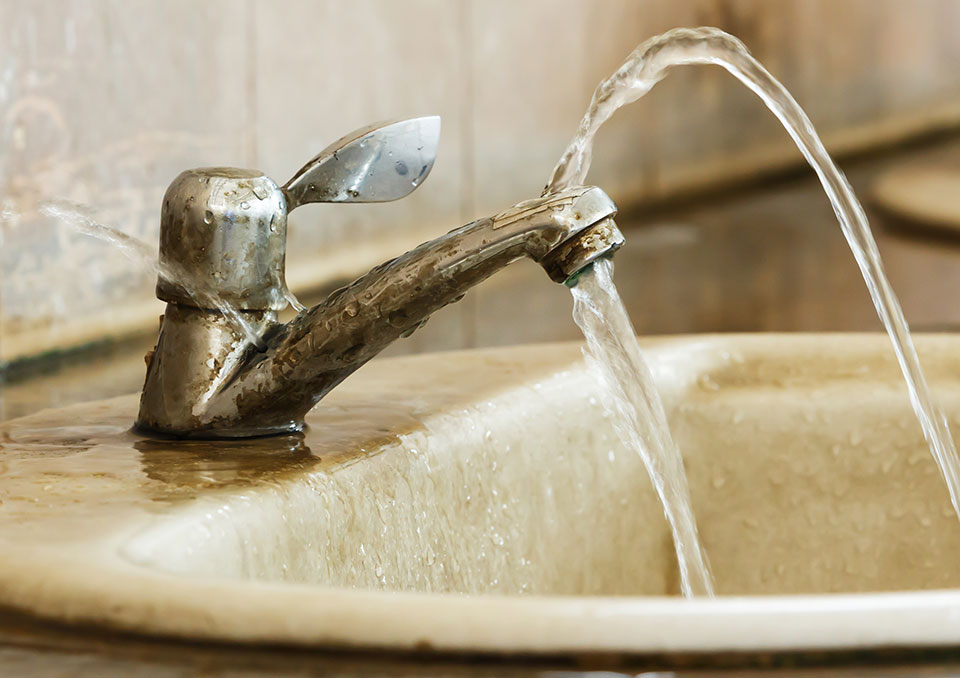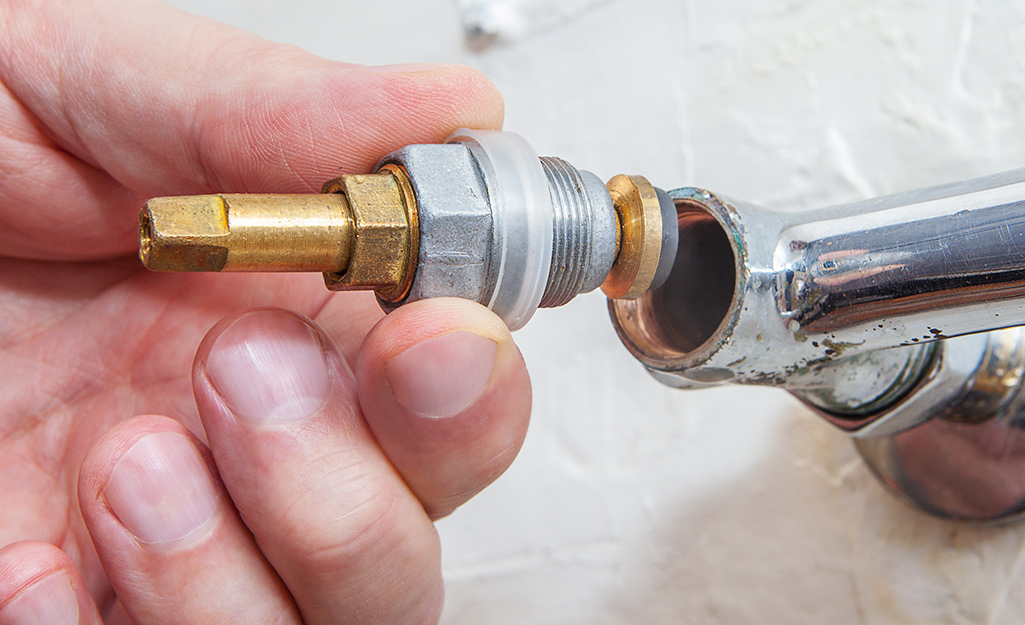Discovering the Significance of Dealing with a Dripping Faucet
Discovering the Significance of Dealing with a Dripping Faucet
Blog Article
This article further down involving 4 Common Reasons for a Leaky Faucet is exceedingly insightful. Have a go and make your own personal conclusions.

Dripping taps might seem like a minor inconvenience, but their influence goes beyond simply the inconvenience of the sound. From drainage to incurring unneeded economic prices and wellness dangers, ignoring a dripping tap can bring about different repercussions. In this post, we'll explore why it's important to resolve this common family concern promptly and effectively.
Waste of Water
Environmental Impact
Dripping faucets contribute dramatically to water wastage. According to the Epa (EPA), a solitary tap dripping at one drip per second can squander more than 3,000 gallons of water each year. This not only stress water sources yet also influences ecological communities and wildlife based on them.
Step-by-Step Overview to Fixing a Dripping Tap
Devices Needed
Before attempting to repair a trickling faucet, collect the needed tools, including an adjustable wrench, screwdrivers, replacement components (such as washing machines or cartridges), and plumber's tape.
Usual Faucet Issues and Their Solutions
Recognize the kind of faucet and the details concern triggering the drip. Typical troubles include worn-out washing machines, corroded shutoff seats, or faulty O-rings. Refer to manufacturer instructions or on the internet tutorials for step-by-step guidance on repairs.
Financial Prices
Raised Water Bills
Beyond the environmental impact, trickling taps can inflate water costs substantially. The built up wastefulness over time converts into greater energy costs, which can have been stayed clear of with prompt repair work.
Possible Property Damage
Additionally, prolonged dripping can result in damage to fixtures and surfaces bordering the faucet. Water buildup can create discoloration, corrosion, and also architectural issues if left neglected, resulting in additional fixing prices.
Wellness Issues
Mold and Mildew Development
The continuous presence of dampness from a trickling faucet develops an excellent environment for mold and mildew growth. These fungis not only compromise indoor air quality but additionally pose health threats, specifically for people with respiratory system conditions or allergies.
Waterborne Illness
Stationary water in trickling taps can come to be a breeding ground for microorganisms and various other microorganisms, increasing the threat of waterborne illness. Pollutants such as Legionella bacteria thrive in stagnant water, possibly resulting in serious ailments when ingested or breathed in.
DIY vs. Professional Fixing
Pros and Cons of Do It Yourself Repair Service
While some might try to deal with a leaking tap themselves, DIY repairs include their own set of challenges. Without appropriate expertise and tools, DIY attempts can worsen the problem or bring about insufficient fixings, prolonging the problem.
Benefits of Employing an Expert Plumber
Hiring an expert plumber ensures that the underlying reason for the trickling faucet is attended to successfully. Plumbing technicians possess the proficiency and tools to identify and repair tap issues effectively, conserving time and minimizing the threat of additional damage.
Ecological Obligation
Private Payment to Preservation
Taking duty for fixing dripping faucets lines up with more comprehensive initiatives toward water conservation and environmental sustainability. Every person's actions jointly make a substantial effect on preserving valuable resources.
Sustainable Living Practices
By focusing on punctual repairs and adopting water-saving practices, people add to lasting living practices that benefit both present and future generations.
Preventive Measures
Normal Upkeep Tips
To prevent trickling faucets, do routine maintenance such as cleaning aerators, evaluating for leaks, and replacing damaged components quickly. In addition, take into consideration mounting water-saving gadgets or updating to extra reliable components.
Importance of Prompt Services
Dealing with dripping faucets as soon as they're noticed stops more water wastefulness and potential damages, eventually conserving both water and money over time.
Effect On Residential Property Worth
Understanding of Well-Maintained Property
Preserving a property in good condition, consisting of attending to maintenance concerns like leaking taps, boosts its perceived value and value among prospective buyers or lessees.
Influence on Resale Value
Qualities with properly maintained plumbing fixtures, consisting of taps, command greater resale worths in the realty market. Addressing trickling faucets can add to a positive impact during home examinations and negotiations.
Final thought
Attending to a trickling faucet goes beyond mere ease; it's an essential action towards saving water, minimizing monetary costs, and securing health and wellness and building. Whether via do it yourself repair work or professional help, acting to take care of dripping taps is a small yet impactful means to promote liable stewardship of resources and add to a much healthier, more lasting future.
How to Fix a Leaky Faucet: Step-by-Step Repair Guide
A leaky faucet may seem like a simple annoyance, but if it's not fixed promptly, that leak could cost hundreds to potentially thousands. From water damage to mold, mildew, and high water bills, even a tiny leak can be catastrophic if left unattended. Damage like this can even affect the overall value of your home, so it's important to take the right approach for leaky faucet repair. You may need the help of a plumber in some cases, but we've got a few tips you can try on how to fix a leaky faucet before calling the pros.
Four Faucet Types
When you're learning how to fix a leaky faucet, the first step is knowing what kind of faucet you're working with! There are four common types.
Cartridge Faucets
Cartridge faucets come in one- or two-handled varieties. In one-handled cartridge faucets, hot and cold water combines in a single cartridge. In the two-handled versions, hot and cold water are controlled separately and mixed in the faucet.
Ball Faucets
Ball faucets have a single lever you push up and down to adjust the pressure and rotate to change the temperature. A slotted metal ball controls the amount of water allowed into the spout.
Compression Washer Faucets
They're the oldest type of faucet, but they're still used in many homes — especially older ones. Compression faucets have two separate handles that, when turned, raise or lower the washer that seals a water valve. This valve stops water from flowing through the faucet when it is turned off.
Disc Faucets
Disc faucets rarely need to be repaired due to their maintenance-free design. The water flow is controlled by two discs — the upper one raises and lowers against a fixed lower disc, creating a watertight seal. If your disc faucet starts leaking, you may need to replace the seals or clean residue buildup from the inlets.
Fixing a Leaky Faucet
Step 1: Turn Off the Water
Whether you're learning how to fix a leaky bathtub faucet or how to fix a leaky kitchen faucet, always turn off the water supply to your working area when you're fixing a leak. The last thing you want is a flood added to your list of things to fix.
Look for the shutoff valves below your sink or around the tub and turn them clockwise to stop the water flow. If your faucet doesn't have shutoff valves, you may need to turn off the water for the whole house. Check to make sure it's off by turning the faucet on. If nothing comes out, you're ready to start the repair.
Step 2: Take Apart the Faucet
How you disassemble your faucet depends on the type of fixture you have. You can use a flathead screwdriver to remove the caps on top of the handle or handles for cartridge and compression faucets. Inside, you should see handle screws. Unscrew these with a screwdriver to remove the handle.
Disc- and ball-style faucets will typically have an inlet screw near the handle, and removing that will reveal the interior of the faucet.
Detach the Valve Stem
For cartridge- and compression-style faucets, you'll see the inner valve stem or cartridge once you remove the faucet handles. If you have a compression faucet, unscrew the brass valve stem. If you have a cartridge faucet, pull out the cartridge. If your cartridge has been in place for a while, it may require some tools or extra force to remove it due to mineral deposits.
Examine and Replace Parts
Once you've removed the parts, check them out to confirm what needs to be replaced. You may see corroded rubber washers, O-rings, stems, or cartridges. On a ball-style faucet, check the seats and springs for damage.
If you need to repair a leaky disc faucet, check the inlet and seals on the lower disc.
Once you determine what parts must be replaced, visit your local hardware store. Bring the damaged parts with you to ensure you can purchase the correct components to replace them.
Clean Valves and Faucet Cavity
If you've removed a stem or cartridge, you may notice mineral buildup in the faucet's threads. Use white vinegar to clean the valve seat by soaking it for a few minutes, then scrub it away with a soft toothbrush and rinse with warm water. You can also clean the interior of the faucet in the same way.
Reassemble the Faucet
Once your faucet is cleaned and the required parts have been replaced, it's time to reassemble it. Put the pieces back together and slowly turn the water supply back on. Doing this slowly is crucial because too much initial water pressure can damage the new hardware you've just installed.
https://homewarranty.firstam.com/blog/how-to-fix-leaky-faucet

I am just very drawn to and I hope you enjoyed reading the new blog posting. If you please take the opportunity to distribute this blog posting if you enjoyed reading it. We thank you for reading our article about What Causes Leaky Faucets & How To Fix Them.
Report this page